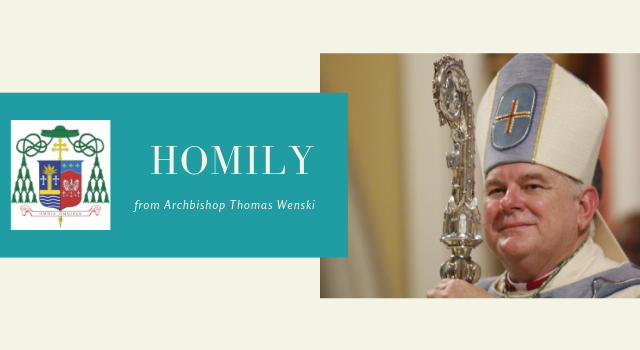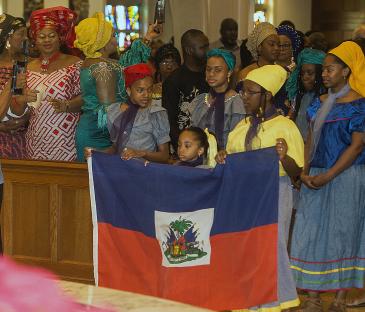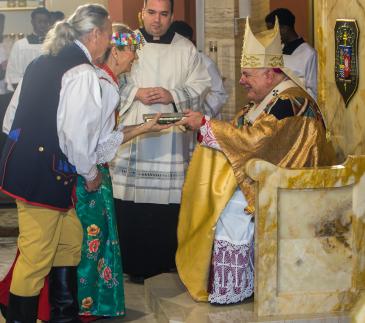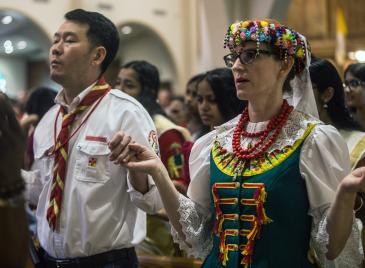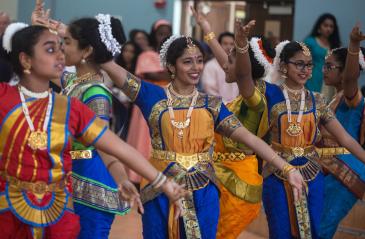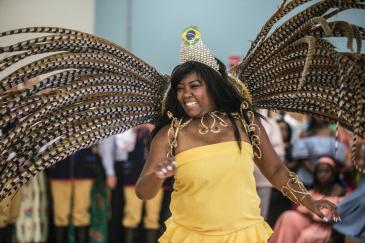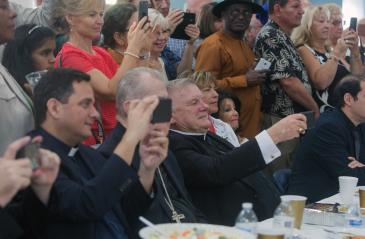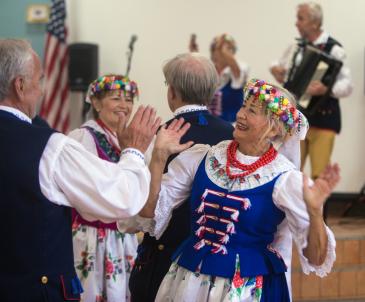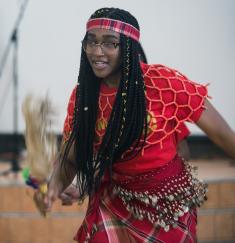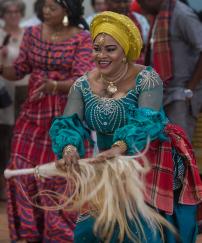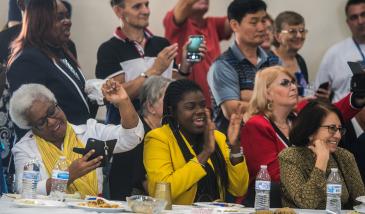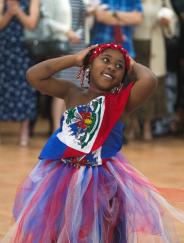By Archbishop Thomas Wenski - The Archdiocese of Miami
Photography: MARLENE QUARONI | FC
Archbishop Thomas Wenski preached this homily Jan. 13, 2019 at St. Mary Cathedral, during the annual Migration Mass celebrating the different ethnic and language groups in the Archdiocese of Miami.
Today’s celebration of National Migration Week with its theme “Building Communities of Welcome” is framed by two great feasts: Last Sunday’s celebration of the Epiphany and today’s celebration of the Baptism of the Lord. At last Sunday’s Mass, we sang “Lord, every nation on earth will adore you”. Those nations were represented by the Magi who came to worship the Christ Child in Bethlehem. Today, in this Cathedral, people from the many nations that make up this local Church here in South Florida come to adore the Lord who came among us as a light for the world, the light for the nations.
Epiphany � which means “manifestation” or revelation � celebrates the fact that when Jesus was born as a man in Bethlehem he came not for just one people but for all peoples, all races � of all times and places.
And today’s feast, the Baptism of Jesus, is really another Epiphany or Revelation: for in going into the waters of the Jordan, God’s beloved Son wishes to show his solidarity with the entire human race. With his baptism, Jesus anointed by the Holy Spirit begins his public ministry. He begins his great work of salvation, a salvation destined not only for the Jews but for all mankind.
The good news of salvation is “catholic” � a word that comes from the Greek language and means universal. If salvation is “catholic,” then the Church which Jesus founded to preach the good news of salvation must necessarily be Catholic as well. If the Church is the Father’s House, then all those who are God’s children through baptism should feel at home in their Father’s House. And, as “welcoming communities” we must understand that the best way to make someone feel at home in their “Father’s House” is to speak in their Mother’s tongue. In the Church there are no borders � and in the Church there should be no strangers. Newcomers, even if they speak a different language or wear different clothes or look different than us, are to be embraced, in Christ, as brothers and sisters.
Jesus in calling us to communion with his Father through the gift of his Spirit does not demand of us that we change our culture, our language or even our nationality: he only asks that we change our hearts.
Today the presence of so many ethnic and language groups that form part of our Archdiocesan community should show that all can and do find a welcoming community in the Catholic Church.
Today we live in a globalized world. Pope emeritus, Benedict XVI, once remarked that while globalization has made us all neighbors, it has not made us brothers. It is the Church, the Church that is Catholic � that brings into its communion people of every race, language and culture � that must teach the world how to live as brothers and sisters.
Part of the globalization we experience today is the fact of migration. In a globalized world, goods and merchandise made in one continent are bought and sold in another, half a world away; information and money can cross borders in an instant; and, in a globalized world, people also increasingly move across borders � often in dramatic ways.
The Church teaches us not to fear the migrant � and the Church warns us not to mistreat the migrant. In a way, just as we call Jesus the King of Kings and the Lord of Lords, we can refer to him as the Migrant of Migrants as well. In becoming a man like us, he “migrated” from heaven. He became a citizen of our world so that we in turn might become citizens of the world to come. And those who will enter into his heavenly homeland will do so because, as he himself will tell us: “I was a stranger, and you welcomed me.”
This is why the Church will continue to speak out on behalf of migrants everywhere. We speak out in defense of those, especially the young, who are trafficked across borders to be exploited in the sex trade. We will continue to advocate for a just and equitable reform of a broken immigration system that continues to separate families for unacceptable periods of time and that provides no path to citizenship for millions who work in jobs that otherwise would have gone unfilled. We will continue to encourage Congress to provide a just and reasonable solution to the plight of the Dreamers and TPS beneficiaries. We will defend the rights of refugees and asylum seekers for a safe haven from persecution and violence.
Thanks to our Catholic Charities � working in cooperation with our government � thousands have been successfully resettled here in South Florida and elsewhere over the years to begin new lives. And thanks, also, to the U.S. Bishops’ Catholic Legal Immigration Network (CLINIC) and our own Archdiocese’s Catholic Legal Services, immigrants and refugees find legal assistance that can give them a chance for a future of hope in this nation of immigrants.
The baptism of Jesus is a type of synopsis � or summary � of his whole life. This baptism by John announces and anticipates the other baptism that awaits him, his baptism in blood when he dies on the cross to atone for our sins. We, when we are baptized, received not the baptism of John; our sacramental baptism is a participation in Jesus’ death and resurrection. As we are bathed in the waters of the baptismal font, we die with Christ � and we rise with him � to a new life as sons and daughters of God. In our baptism, the Father also speaks to us and says to each one of us, “You are my beloved Son.” The Spirit also descends upon us � and we are anointed, we are christened so that we too, like Jesus, will do the will of the Father. Anointed as Christ was anointed we become “Christians.”
At his Baptism by John in the River Jordan, Jesus was revealed as the only begotten Son of God. But his baptism shows his solidarity with our human race � he comes to be our brother � and to make us children of his Father and brothers and sisters with him and with one another.
The theme of this year’s National Migration Week is, as I said, “building communities of welcome.” May our solidarity with the world of migration � the refugee, the migrant, the displaced person, the exile � help us build those communities in our parishes and in our neighborhoods. Then, in the words of today’s responsorial psalm, “The Lord will bless his people with peace.”
